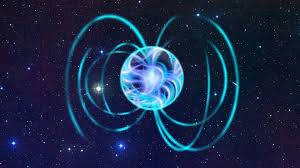
Breaking News
 Green Rush Reloaded: Pot Stocks Soar On Trump Push For Rescheduling
Green Rush Reloaded: Pot Stocks Soar On Trump Push For Rescheduling
 Nuclear Reactors For Investors
Nuclear Reactors For Investors
 Everyone Except Zelensky 'Loved' My Plan, Trump Says, Warning Of WW3
Everyone Except Zelensky 'Loved' My Plan, Trump Says, Warning Of WW3
 Israel Used Palantir Technology In Its 2024 Lebanon Pager Attack, Book Claims
Israel Used Palantir Technology In Its 2024 Lebanon Pager Attack, Book Claims
Top Tech News
 Build a Greenhouse HEATER that Lasts 10-15 DAYS!
Build a Greenhouse HEATER that Lasts 10-15 DAYS!
 Look at the genius idea he came up with using this tank that nobody wanted
Look at the genius idea he came up with using this tank that nobody wanted
 Latest Comet 3I Atlas Anomolies Like the Impossible 600,000 Mile Long Sunward Tail
Latest Comet 3I Atlas Anomolies Like the Impossible 600,000 Mile Long Sunward Tail
 Tesla Just Opened Its Biggest Supercharger Station Ever--And It's Powered By Solar And Batteries
Tesla Just Opened Its Biggest Supercharger Station Ever--And It's Powered By Solar And Batteries
 Your body already knows how to regrow limbs. We just haven't figured out how to turn it on yet.
Your body already knows how to regrow limbs. We just haven't figured out how to turn it on yet.
 We've wiretapped the gut-brain hotline to decode signals driving disease
We've wiretapped the gut-brain hotline to decode signals driving disease
 3D-printable concrete alternative hardens in three days, not four weeks
3D-printable concrete alternative hardens in three days, not four weeks
 Could satellite-beaming planes and airships make SpaceX's Starlink obsolete?
Could satellite-beaming planes and airships make SpaceX's Starlink obsolete?
Three Surprising Facts About the Physics of Magnets

Sutter is also host of Ask a Spaceman and Space Radio, and leads AstroTours around the world. Sutter contributed this article to Space.com's Expert Voices: Op-Ed & Insights.
Magnets and the magnetic force are ubiquitous in our everyday lives, helping to guide us in unfamiliar territory and attach our kids' artwork to the fridge. But other than those common examples, magnetic fields always seem to play second fiddle in the symphony of forces in the universe. Sure, every once in a long while they may get to call the shots — like in the extremely dangerous environments of a magnetar or the extremely useful environments of an NMR scanner — but for the most part they simply exist, getting pushed around by their more powerful cousins.
But despite their relative insignificance, they hold a few secrets.

 First totally synthetic human brain model has been realized
First totally synthetic human brain model has been realized Mach-23 potato gun to shoot satellites into space
Mach-23 potato gun to shoot satellites into space

